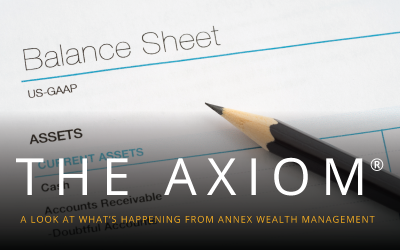
Annex Wealth Management’s Dave Spano and Derek Felske discuss a fed “pause” versus a “pivot” and why this is not a recession – yet.
Oops! We could not locate your form.
GET STARTED →
BACK TO TOP ↑
When To Review Your Estate Plan

Estate planning, like financial planning, is an ongoing and evolving process that needs to have regular check-ins and reviews to make sure everything is in order. In other MoneyDos we’ve talked about the importance of account titling and beneficiary designations so that everything with your estate plan is aligned.
This week outlines some key life events that should prompt you to dust off your estate planning documents and review them and why.
1. If there are changes in family status, due to death, divorce, marriages or births you will want to determine the impact on your named fiduciaries and beneficiaries. It’s likely a change will need to be made to remove or add individuals.
2. If you change your primary residence to a different state, you’ll want to meet with an estate planning attorney in your new state due to unique laws that may need to be incorporated into an updated estate plan.
3. If you experience changes in your financial situation, such as changes in your employment status, including retirement, sale or transition of your closely held business, or an inheritance there could be additional planning that needs to be done from a tax perspective.
4. If you experience changes in your health or insurance coverage (health, life, etc.…) you’ll want to review the impact on your plan. Significant health issues may mandate updating your wishes quickly, but also making sure your health care power of attorney contemplates what you are going through.
5. When there are changes in tax laws that may impact inheritance of funds, which could include income, gift and/or estate taxes changes; and
6. Approximate every three to five years to make sure you have a good understanding, and everything is in order.
The review should include:
1. Reading all the documents.
2. Knowing who is named in all the various roles within your estate plan (i.e. your power of attorney, executor, trustee, etc.) including the backup people to make sure they are still appropriate.
3. Understanding who your beneficiaries are and how they will inherit assets from you, and potentially how much and whether that is still appropriate given other planning you have completed since the documents were drafted.
4. Reviewing your account titles and beneficiary designations.
BACK TO TOP ↑

BACK TO TOP ↑
BACK TO TOP ↑
UPCOMING EVENTS →
BACK TO TOP ↑







